First Pages of Best-Selling Novels: The Goldfinch
In this week’s look at best-seller first pages, we’re going to dive into another literary work. Donna Tartt’s The Goldfinch won the Pulitzer in 2013 for fiction. I had a lot of reservations about reading this novel. Not because I read a lot of reviews, which were mixed but because years earlier I had read her highly touted novel The Secret History, which I found quite tedious and highly overrated.
I cringe to admit that I’ve read quite a few Pulitzer Prize–winning novels over the years, and I’ve almost always scratched my head wondering who in the world chooses these books. They are often packed full of narrative that drags on for pages, or they are so much about the writing that the plot reminds me of a deflated balloon that’s been crushed by a truck’s tires.
Call me snooty. That’s just my taste. Thing is, I love literary fiction and I write it. So that should, at least, make me a targeted reader for this kind of book.
I had mixed feelings about The Goldfinch. I actually couldn’t finish it after getting about two-thirds through. When I get to the point in a novel where I’m pushing myself to read in order to be fair and patient (but I’m starting to fidget and hate every moment and thinking of all the things I’d rather be doing than sitting reading that book), I slow to a crawl and finally give in and give up.
Glancing at a number of the reviews on Amazon for this book, I noticed quite a few readers did the same. I, too, found the first third of the book riveting—particularly the whole scene showing the explosion at the museum in which the main character, a young boy, loses his mother and acquires the famous painting The Goldfinch. I expected the novel, then, to be a great suspenseful mystery about this boy and this painting. But what follows is a saga of his years of moving around from place to place and living with different characters, and the plot, to me, kind of wanders off lost—just as this boy has.
But I’m not here to do a full book review. We’re using my first-page checklist to go through the author’s first page to see why it effectively draws the reader quickly into the story. While novels don’t have to have every one of these checklist elements on the first page, usually the more they do have, the stronger the opening.
So without further ado, let’s read page one.
Chapter 1.
Boy with a Skull
While I was still in Amsterdam, I dreamed about my mother for the first time in years. I’d been shut up in my hotel for more than a week, afraid to telephone anybody or go out; and my heart scrambled and floundered at even the most innocent noises: elevator bell, rattle of the minibar cart, even church clocks tolling the hour, de Westertoren, Krijtberg, a dark edge to the clangor, an inwrought fairy-tale sense of doom. By day I sat on the foot of the bed straining to puzzle out the Dutch-language news on television (which was hopeless, since I knew not a word of Dutch) and when I gave up, I sat by the window staring out at the canal with my camel’s-hair coat thrown over my clothes—for I’d left New York in a hurry and the things I’d brought weren’t warm enough, even indoors.
Outside, all was activity and cheer. It was Christmas, lights twinkling on the canal bridges at night; red-cheeked dames en heren, scarves flying in the icy wind, clattered down the cobblestones with Christmas trees lashed to the backs of their bicycles. In the afternoons, an amateur band played Christmas carols that hung tinny and fragile in the winter air.
Chaotic room-service trays; too many cigarettes; lukewarm vodka from duty free. During those restless, shut-up days, I got to know every inch of the room as a prisoner comes to know his cell. It was my first time in Amsterdam; I’d seen almost nothing of the city and yet the room itself, in its bleak, drafty, sunscrubbed beauty, gave a keen sense of Northern Europe, a model of the Netherlands in miniature: whitewash and Protestant probity, co-mingled with deep-dyed luxury brought in merchant ships from the East. I spent an unreasonable amount of time scrutinizing a tiny pair of gilt-framed oils hanging over the bureau, one of peasants skating on an ice-pond by a church, the other a sailboat flouncing on a choppy winter sea: decorative copies, nothing special though I studied them as if they held, encrypted, some key to the secret heart of the old Flemish masters. Outside, sleet tapped at the windowpanes and drizzled over the canal; and though the brocades were rich and the carpet as soft, still the winter light carried a chilly tone of 1943, privation and austerities, weak tea without sugar and hungry to bed.
Early every morning while it was still black out, before the extra clerks came on duty and the lobby started filling up, I walked downstairs for the newspapers. The hotel staff moved with hushed voices and quiet footsteps, eyes gliding across me coolly as if they didn’t quite see me, the American man in 27 who never came down during the day; and I tried to reassure myself that the night manager (dark suit, crew cut, horn-rimmed glasses) would probably go to some lengths to avert trouble or avoid a fuss.
The Herald Tribune had no news of my predicament but the story was all over the Dutch papers, dense blocks of foreign print which hung, tantalizingly, just beyond the reach of my comprehension.
Why This Works
So, let’s go through the checklist:
Opening Hook: Clever writing and image that grabs the reader—beautiful use of language and an interesting premise: a man who’s locked himself in a hotel room in a foreign country for days on end. The author hints at doom, and that the man is hiding. Raises a lot of questions.
Introduction of main character in first few lines: Written in first person, we know we’re reading the story from the protagonist’s POV, but it isn’t clear if the storyteller is male or female until almost the end of the first page. However, the mystery seems intentional of the author’s part. It’s a slow build and the protagonist of the story seems to be in hiding for some reason, so perhaps the author is intentionally vague about who this person is and what they’re hiding from. Building tension, perhaps.
Starting the story in the middle of something that’s happened (or happening): Something has happened to push the man into hiding, but we’re not told the circumstances on the first page.
A nod to setting; avoid excessive exposition or narrative: There is lengthy descriptive narrative about the setting on the first page—for most genres, it would be considered excessive; however, for the literary genre and the story being told, it feels appropriate. And it continues this way through the very long novel.
The author paints a beautiful contrast between the cheer of the Christmas activity outside the hotel room window, and the restlessness the protagonist feels shut up in the room he’s come to know “as a prisoner comes to know his cell.” Tartt’s forte, to me, is her ability to paint vivid sensual settings.
A catalyst, inciting incident, or complication introduced for your character: He seems trapped by something he’s done, perhaps, and is hiding from law enforcement, maybe? The author doesn’t give us these details on the first page, but hints at them through the protagonist’s reflections and actions. For example, he only leaves the room early in the morning, while still dark outside, to avoid being seen by other hotel patrons. He assumes the night manager, should he catch on or recognize the protagonist (from the papers, perhaps?) won’t want any trouble so will keep quiet.
A hint at character’s immediate intentions: To remain hidden—avoid being seen, noticed.
A hint at character’s hidden need, desire, goal, dream, fear: Fear of being discovered and caught. We’re not sure of his need other than safety and anonymity.
Unique voice/writing style: Beautifully written, great contrasting descriptions, and just enough information to keep the reader wondering and turning pages.
Setting the tone for the book: This same lovely narrative runs throughout the book. Tartt is quite the wordsmith, and much of the enjoyment in reading this book is in her choice of words and descriptions.
A glimpse at character’s personal history, personality—shed light on motivation: The author conveys a sense of his personality through some of his descriptions and actions, but again, they’re subtle. We know his mother must have mattered to him, but we’re not told anything about that.
Hint of character’s initial plot goal: Nothing beyond remaining hidden.
A course of action/decision implied. Introduction of high stakes/dramatic tension: Tartt sets up great dramatic tension here with this situation. The stakes are high. This man, if caught, will be in trouble. We don’t know why (surely readers will guess it has something to do with the famous painting he has in his possession, due to the back cover and description for the book), but the first page thrusts us in the middle of his trouble, which is effective.
Good pacing; jump right into present action: The author immediately draws us into the character’s fear and need to hide—there’s a glimpse of backstory, but that’s all.
- One characteristic to reveal that makes your character heroic and vulnerable: Nothing heroic, but certainly vulnerable. He admits he’s afraid, and he pays attention to detail around him.
- One element of mystery, something hinted at that raises curiosity: Absolutely—the author does a fabulous job of piquing the readers curiosity.
- One element out of the ordinary, unusual, that makes the book different/stand out: The use of language—the lovely descriptions.
- Concise Concise, catchy dialogue (if in the first scene) that is not boring or predictable: No dialogue.
- A way to hint at your theme, if you have one: Possibly about mother-son relationships, loss, learning how to survive in life.
What Could Have Been Better
I wish the rest of the book followed many of the successful elements of this first page. What I love about page 1 is the rich description of setting. I love being immersed in place, and Tartt wonderfully evokes this hotel room in Amsterdam. However, the excessive detail hints at what readers are in for over the 600+ pages, and to me, it does go a bit overboard.
On this first page, I would cut down the description just a bit. What I would have put in place of some of that description is more hint about his mother and what happened. Not much, but just a line or so to indicate he’d lost her in some tragedy, and maybe tell when he’d last thought of her. I’d like some emotional clue about his feelings for his mother, his loss. On the next page we do get a bit of what he’d dreamed about, but I feel it would be better placed at the top of page 1 at first mention.
Tartt gets a bit wordy. Does she really need both “my heart scrambled and floundered“? This passage: “Outside, all was activity and cheer. It was Christmas, lights twinkling . . .” could be “Outside, the Christmas lights twinkled . . .” She shows there is activity and cheer, so she doesn’t need to tell it. This line, too, is wordy: “. . . gave a keen sense of Northern Europe, a model of the Netherlands in miniature: whitewash and Protestant probity, co-mingled with deep-dyed luxury brought in merchant ships from the East.” It’s a bit hard to read, to me.
The long bit about studying the paintings on the wall, also, take up a lot of space. We already get that he’s holed up in this room and he’s worried about every sound, and bored. So I think cutting back all that would be useful, and focusing more on his emotional state and what he perhaps thinks about what he’s done and why he fled NY to come to Amsterdam could add a bit more tension, mystery, and interest.
I do feel she’s wonderfully set this character up, showing he’s in trouble, and his frustration and discomfort in being in a country he’s unfamiliar with among people that speak and read a language he doesn’t understand. We want to know why he came here and what his objective is. And what Tartt has on that first page is terrific to pull readers in to read more.
What follows right after page 1 is a little more about the incident that forced him to flee—police cars, crime-scene tape shown in the paper—which helps add to the mystery and sense of danger. Then slowly, with a lot of narrative, he gets into the backstory of the day his mother died in the explosion, which, eventually (to my enjoyment) moves more into showing instead of summary telling.
All in all, I love this first page and wish the entire novel could carry the potent sense of mystery and drama that it promises. But as a first page, I feel it’s terrific.
So, what are your thoughts? What did you like best about this opening? What bothered you? Share in the comments!
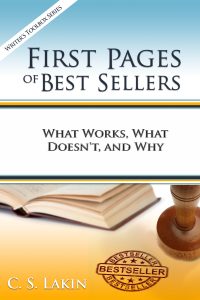 Want to read all the analyses of best-seller first pages on Live Write Thrive?
Want to read all the analyses of best-seller first pages on Live Write Thrive?
Get the compiled collection of posts, along with additional insights and instruction that will help your first pages rock!
First Pages of Best Sellers: What Works, What Doesn’t, and Why is available in Kindle ebook and paperback! Get yours HERE!

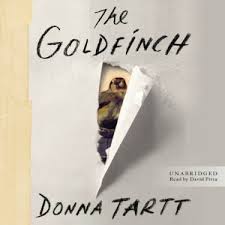

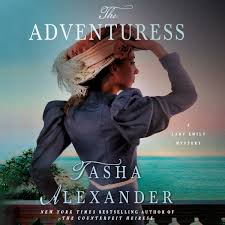
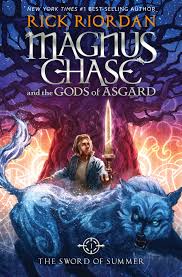
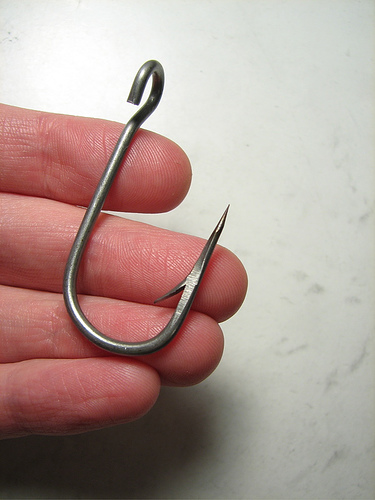






First, I have to say that I feel much better reading your comments about pulitzer prize winners. I keep trying to force myself to read them and wind up feeling like such a loser/idiot/slow person who just doesn’t get it. I’m currently working on the History of Love (which wasn’t a pp, but was an award winning novel) and feeling that familiar feeling that I don’t measure up.
Anywho, I listened to the audio version of this book, which i HIGHLY recommend. the reader is amazing. Even so, I remember those first pages and feeling like, “okay, get on with it,” at the same time as I loved the description. I was really in that room and could smell the smoke and feel the debris. She does this so well, but I agree, maybe overdone a bit, at least for a reader like me.
She does so many things well, but I can’t help but think that if it were her first book an agent would have made her cut a few hundred pages before submitting it anywhere!
I did finish it, but during the part when they were holed up in that half-finished neighborhood (Vegas?) doing all kinds of drugs went on and on and I told my husband, “I bet if I were reading this book, I would have put it down by now.”
The ending was awesome, seriously couldn’t stop listening and stayed up until 2 am to finish (5 hours past my bed time!)
I must say I’m extremely disappointed that you have reviewed a book that you could not even finish. It’s rather like taking instruction from someone on how to run a marathon yet that someone hasn’t finished a marathon. Surely there are other books you have read that are amazing reads from cover to cover that could be used as illustrations for your intended critique. Perhaps your intent was to illustrate in these four pages what NOT to do. That’s the only message I can come away with. Like the book itself this critique turns out to be just a bit of a waste of time, for me.
Well, I read hundreds of pages of The Goldfinch, but I’m not reviewing the book. Many of these novels I’m looking at (just the first page), I’ve never read at all. So, be clear here–I’m only looking at the first page and seeing what the strengths and weaknesses are on that page, and how readers might learn from the examination. I would never review a novel I hadn’t read in full.
For me, the benefit of this post was the analysis of the strengths of the first page with the rest of the book.
I, also, could not finish this book and it makes me think that there might be a magical balance of beautiful writing and engaging storytelling … and that that balance might vary for each reader. I lean more toward the storytelling side of things and found this book interminable. The kid and his motivations never made much sense to me.
I really appreciate these first page posts and every time I read one, I go back to my own in-process novel and ask myself the suggested questions and what they foretell.
I think … or at least hope … that each time it gets better. Thanks!
Thank you! There are so many different styles and tastes, and so of course there can’t be any right or wrong. But there are always ways to make a sentence stronger, get an emotion across more effectively, or choose different/better wording for more precise impact. It’s a fun process!
I don’t get this: is this scene supposed to be set during Christmas 1943?
I read The Goldfinch cover to cover and loved every page of it. I think it’s the best book I have ever read. I eagerly bought her other books and enjoyed them very much. But The Goldfinch captured me. I recommended the book to friends; most thought it superior, one thought it to be the best ever read as I did, and one hated it.
Everyone has different tastes, that’s for sure. Look at all the many different genres out there. Some we each love and some we dislike. Thanks for sharing that. I enjoyed many sections of The Goldfinch. But just not the type of book I love. I just finished The Invention of Wings (the first page of which I went over a few weeks ago) and absolutely loved the book. It had so much important significance, and that means a lot to me. A story about the two most famous (and infamous) sisters in the 1800s in the South, yet practically no one has ever heard of them. But they were instrumental in the antislavery movement. I didn’t find anything of significance or real meaning to me in the pages of The Goldfinch. Not that every novel must have that, for me, but it does make a huge difference if I can see themes in a novel that speak to universal issues.
I always love seeing your excellent first page checklist in action. I’m another literary fiction fan for whom the Pulitzer Prize is not a reliable barometer. I read this book during two very long flights and it did help pass the time. Wordy, yes, and the Vegas part dragged horribly, but the good parts were breathtakingly good. The very end did grab me as Cara mentioned, though I was a bit dismayed by the author’s attempt to infuse the ending with a larger meaning that I didn’t think justified by the book and also by some rather unbelievable plot twists. In the heat of the moment, I just tore past those problems, but it is not a book I would ever reread.
You made it through 2/3 of this? Bless you.
Yeah, well it helped me fall asleep some nights…
I haven’t read The Goldfinch but I found your analysis of the opening page very useful. However I do question how the man already knows the names of two of Amsterdam’s church bells when he is making his first visit to the city and professes to know not a word of Dutch and in the next para knows three. Little details like that tend to jar with me. Just picky I guess.
Yep, I agree with you. Thanks for sharing that.
Thank you for this article–pulling it all together like you did is so helpful. And using Goldfinch to illustrate your points was (IMO) an excellent choice.
I feel the same way you did about Goldfinch. I expected a Pulitzer prize book to be riveting/compelling in its entirety. Instead, it started to wane rather quickly. I couldn’t finish it either. But that’s why they make chocolate and vanilla, as they say.
I couldn’t finish the book either. I did enjoy your analysis, and I don’t think you need to finish a book to know whether the first page catches a readers attention.
Awesome, awesome book. Really enjoy it. You blog is great i read it with pleasure. Right now i read http://justreadbook.com/book/535936230/behold-a-pale-horse and i love it. It’s one of the 100 books to read in a lifetime. You should keep making more reviews because i like them. Cheers